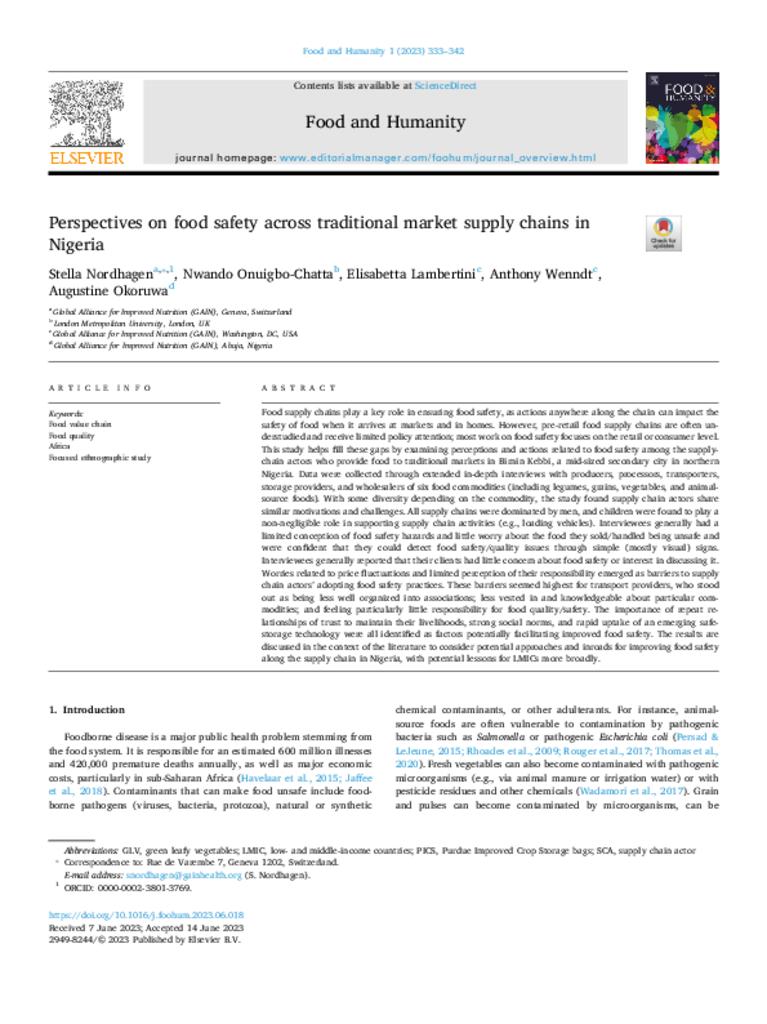This EatSafe study examines perceptions and actions related to food safety among the supply-chain actors who provide food to traditional markets in Birnin Kebbi, Nigeria. Data were collected through extended in-depth interviews with producers, processors, transporters, storage providers, and wholesalers of six food commodities (including legumes, grains, vegetables, and animal-source foods). With some diversity depending on the commodity, the study found supply chain actors share similar motivations and challenges. All supply chains were dominated by men. Interviewees generally had a limited conception of food safety hazards and little worry about the food they sold/handled being unsafe and were confident that they could detect food safety/quality issues through simple (mostly visual) signs. Worries related to price fluctuations and limited perception of their responsibility emerged as barriers to supply chain actors’ adopting food safety practices. These barriers seemed highest for transport providers, who stood out as being less well organized into associations; less vested in and knowledgeable about particular commodities; and feeling particularly little responsibility for food quality/safety. The importance of repeat relationships of trust to maintain their livelihoods, strong social norms, and rapid uptake of an emerging safe-storage technology were all identified as factors potentially facilitating improved food safety.
